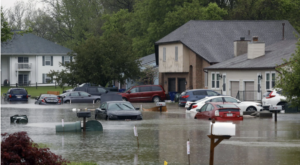People need to have home insurance (also known as renters insurance) because it protects them from loss or damage to their property. In most cases, it protects the home itself and your belongings and protects you from being sued if something bad happens to your property. But before you buy a policy, it is important to know how much home insurance typically costs, because the cost can vary significantly based on several factors.
1. Factors That Affect the Cost of Home Insurance:
The location of the home, the age and condition of the home, the amount of coverage, and the choice of deductible are some of the factors that affect the cost of home insurance. Homes in areas that experience frequent natural disasters, such as earthquakes and floods, may have higher premiums because the likelihood of a claim is greater. Additionally, older homes may cost more because their plumbing or electrical systems may be old and require more repairs.
2. National Average Cost of Home Insurance:
According to the latest information, the average annual cost of home insurance in the United States ranges from $1,500 to $2,000. However, based on what we’ve discussed above, that number could change significantly. In some states, especially those with a higher risk of crime or natural disasters, the average rate can be much higher. For example, because of the frequent hurricanes and flooding in places like Florida and Texas, homeowners there often pay more than the national average.
3. Differences in Premiums Between Regions:
The cost of home insurance can vary greatly from location to location. For example, homes in the Midwest may get lower rates because they don’t experience as many natural disasters as coastal states. Insurance rates in the Northeast are generally fairly average. On the other hand, temperatures on the West Coast are generally higher, especially in California, and wildfires and earthquakes are more likely. Homeowners should research what the normal premiums are in their area and consider how these costs fit into their budget.
4. Home Price and Insurance Amount:
Home insurance rates depend largely on the value of your home. More expensive homes typically require more coverage, which can result in higher premiums. It is important for homeowners to accurately estimate the value of their home and belongings so that they do not purchase too much insurance. Many insurance companies have tools that help people determine how much coverage they need, based on the value and features of their home.
5. Tax Credits and How They Affect You:
The homeowner agrees to pay a certain amount out of pocket before the insurance policy begins to pay out. Typically, policies with higher deductibles have lower premiums, and policies with lower deductibles have higher premiums. When choosing a savings plan, homeowners should consider how much money they have. If you have a higher deductible, your monthly insurance costs may be lower, but you may have to pay more out of pocket if you need to file a claim. It is important to find a combination that works for your financial situation.
6. Discounts That Can Lower Your Rates:
Many insurance companies offer deals that can help you lower your rates. Some common savings include bundling home and auto insurance, installing a security system, or not filing claims for a certain period. Some insurance companies offer discounts on homes with newer features, such as roofs or electrical systems, that make them less likely to file a claim. When purchasing insurance, homeowners should ask about discounts and consider how to obtain them.
7. What is the Role of Credit Scores?
Insurance companies use credit scores in many places to calculate premium amounts. Insurance companies tend to charge lower fees to homeowners with better credit because they consider homeowners to be less of a risk. Some people have said that this approach is unfair to low-income families, which has led to some debate. However, maintaining a high credit score can help you get lower home insurance rates each month. Homeowners should keep an eye on their credit scores and take steps to improve them if necessary.
8. How to Get a Home Insurance Quote?
When purchasing home insurance, it’s important to get quotes from multiple insurance companies. This process allows homeowners to consider different insurance options and prices. It’s easy to get quotes online using comparison tools, but it’s still a good idea to talk to an insurance agent in person. They can give you more personalized help and advice. To get a good idea of how much something will cost, people should make sure they’re comparing quotes for the same coverage amounts and deductibles.
9. How to Read the Fine Print?
Homeowners should read and fully understand the policy terms and conditions before choosing a policy. This means understanding what is and isn’t covered, as well as any coverage limits or caps. By reading the fine print, homeowners can avoid surprises when filing a claim and ensure they’re properly protected. Homeowners should always ask their insurance agent to explain anything unclear.
Conclusion:
Homeowners who want to protect their investment need to know how much home insurance typically costs. Homeowners can make informed choices about their insurance needs by reviewing information such as where they live, how much their home is worth, how much coverage they need, and any available discounts. By regularly reviewing your insurance and taking proactive steps, homeowners can also lower costs and ensure they have the right coverage. By understanding how home insurance works, homeowners can protect their property and feel secure.
FAQs:
1. What is the average cost of home insurance in the United States?
The average annual cost of home insurance in the United States is $1,500 to $2,000. However, this can vary greatly depending on where you live, the value of your home, and the coverage options you choose.
2. What factors affect the cost of home insurance?
The location of the home, its age and condition, the chosen coverage, the chosen payment amount, and the homeowner’s credit score all have an impact on premiums.
3. How does where you live affect the cost of your home insurance?
Homes in areas with high rates of natural disasters, crime, or reconstruction costs often have higher insurance rates than homes in areas with lower risks.
4. What does the premium for home insurance mean?
The deductible is the amount a renter must pay out of pocket before the insurance company will pay the remainder of the claim. Typically, a higher deductible means a lower rate and vice versa.
5. Can homeowners save money on insurance?
Yes, many insurance companies offer discounts for things like having a security system, bundling home and auto insurance, or not making a claim for an extended period. Homeowners should be aware of the available deals.




